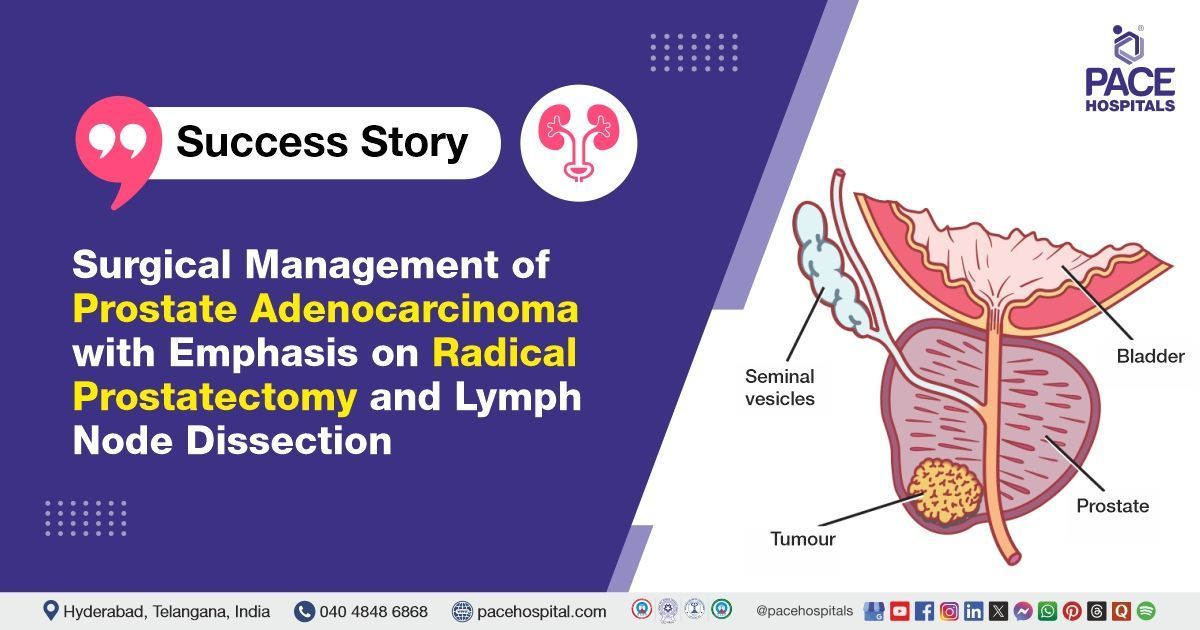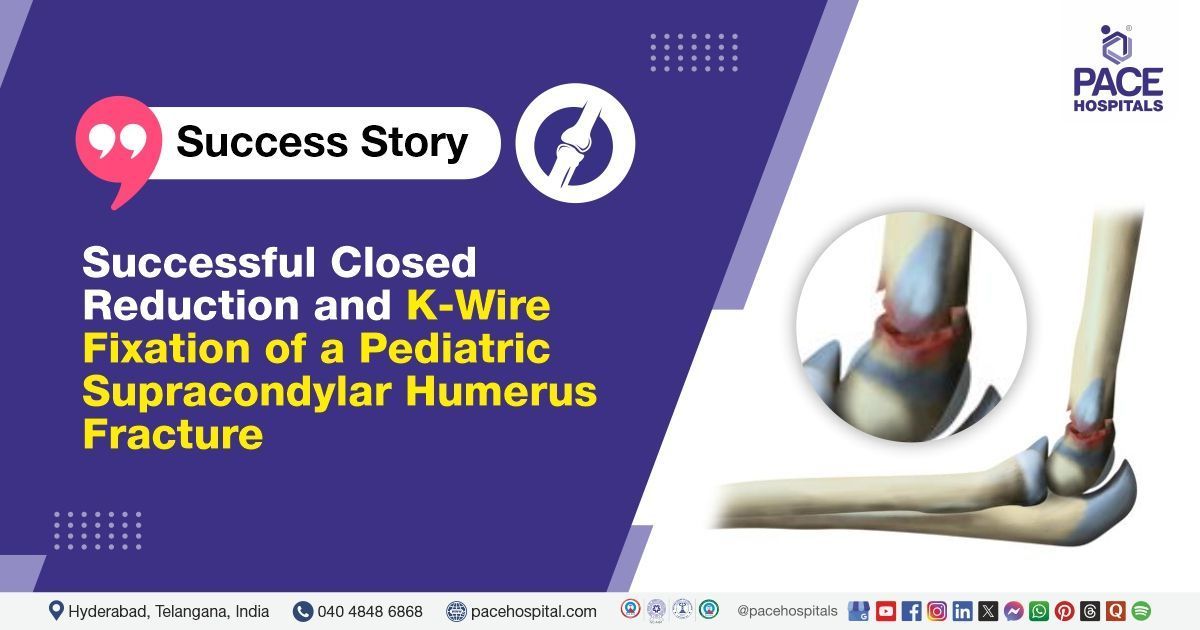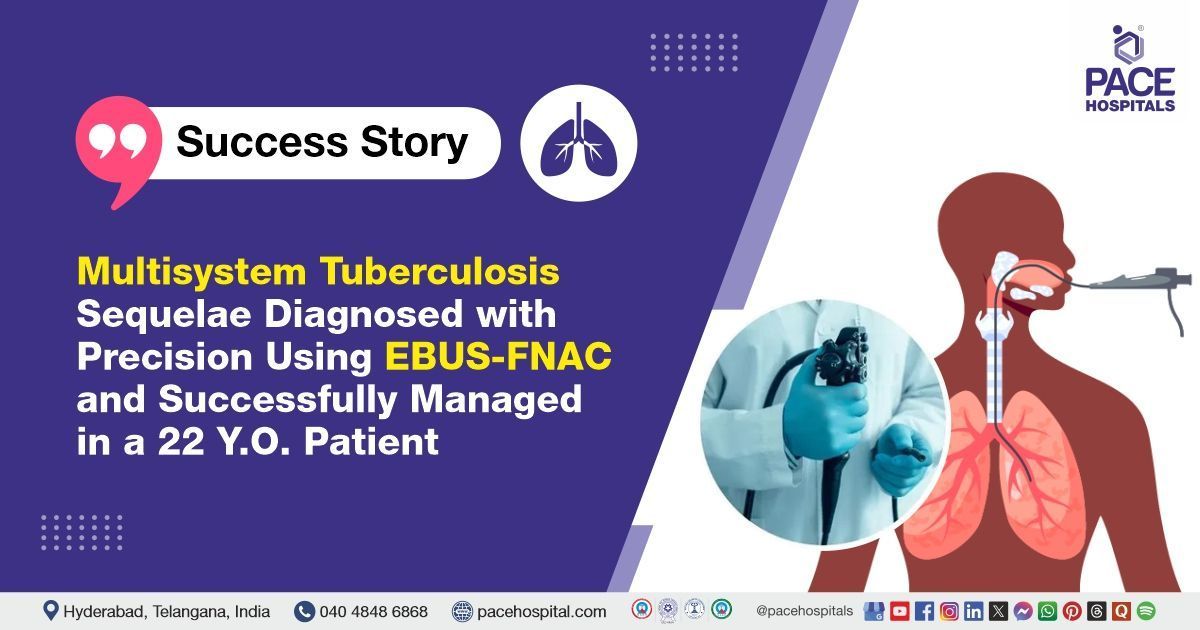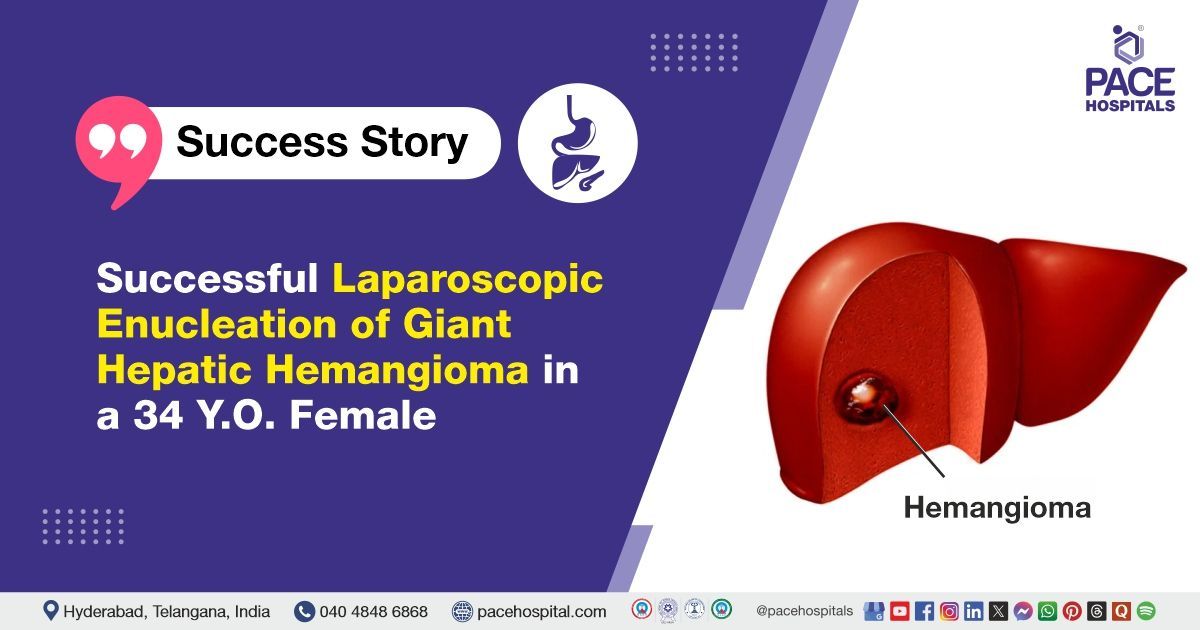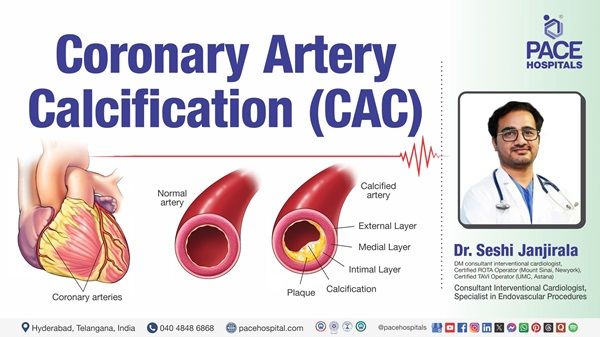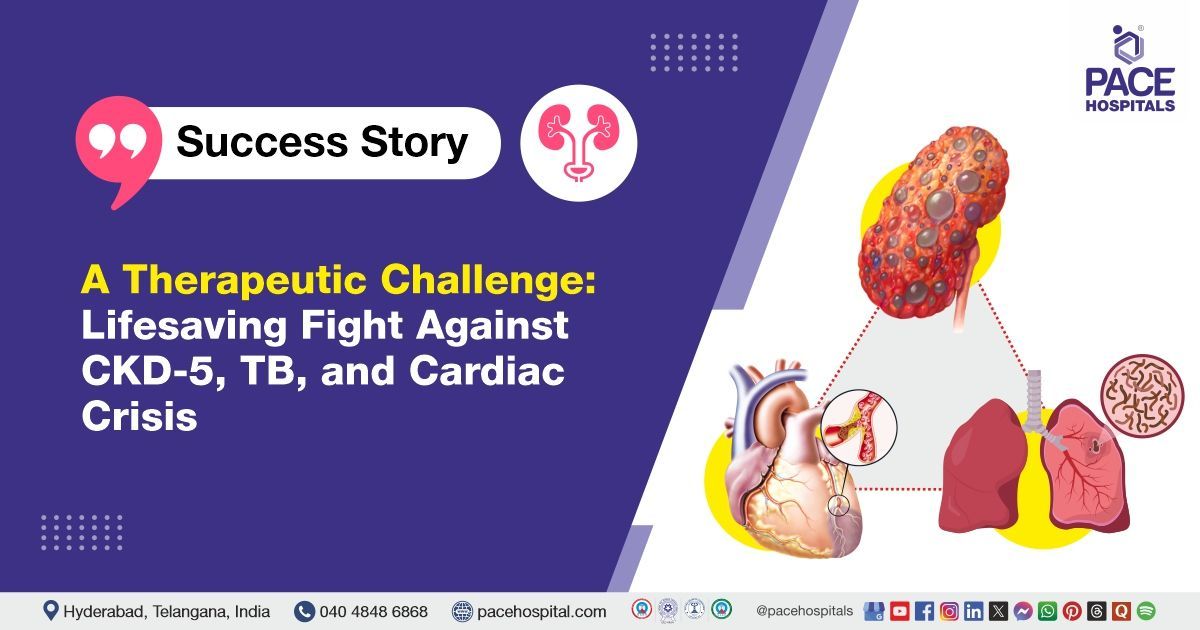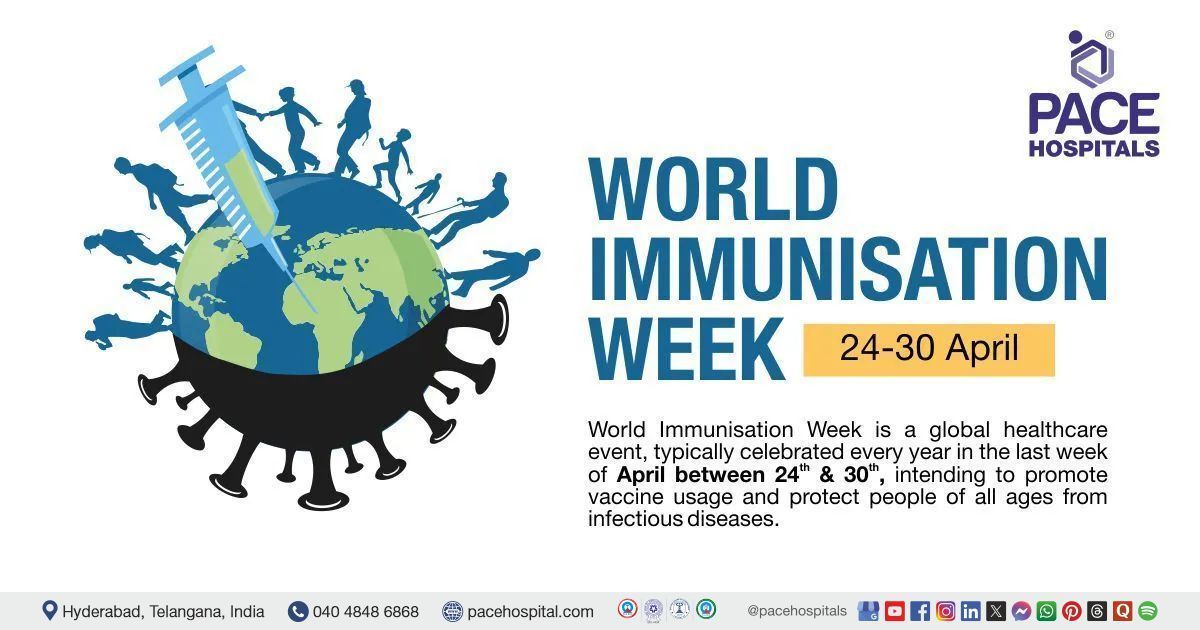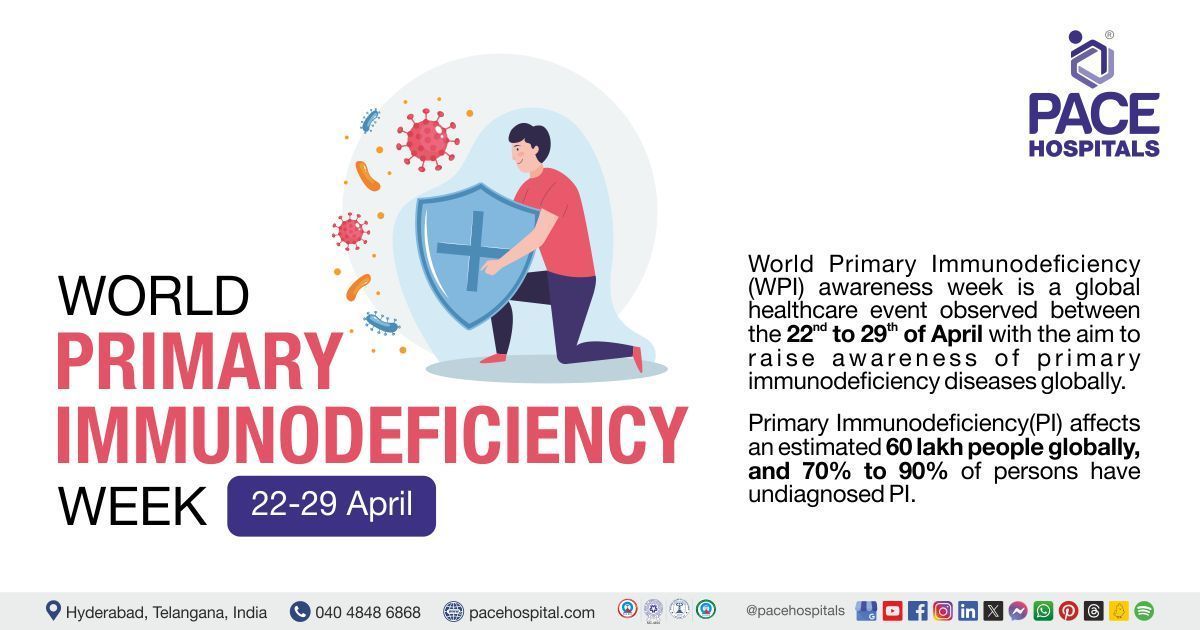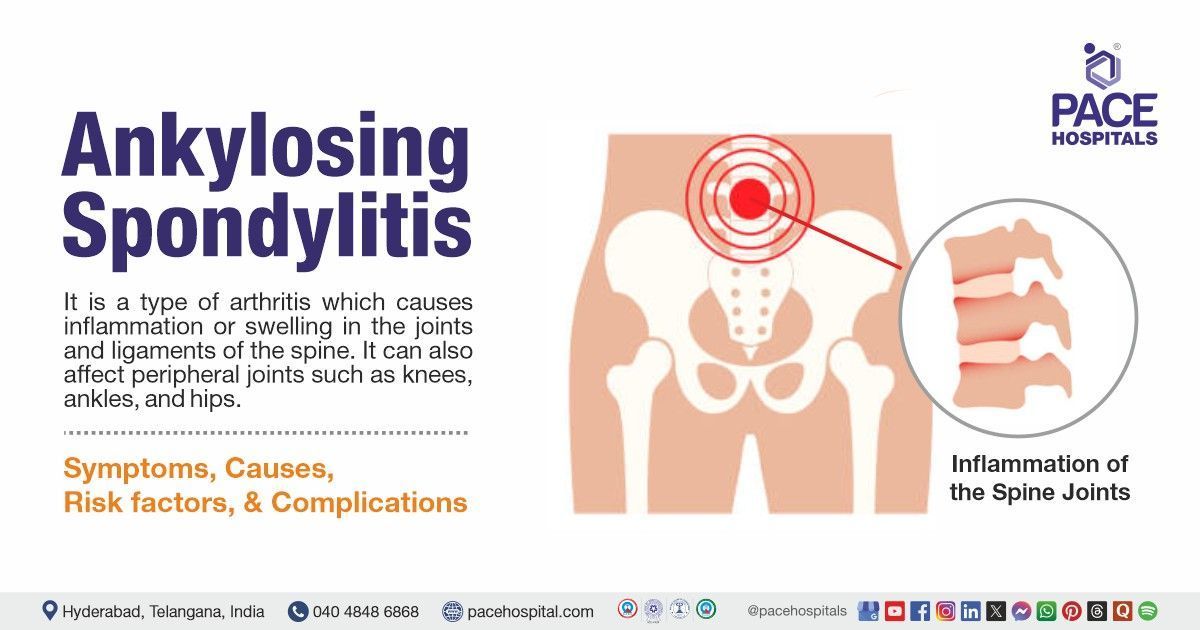Open Radical Prostatectomy for Prostate Adenocarcinoma (Cancer)
A 62-year-old male presented with poor urine flow and was diagnosed with clinically localized adenocarcinoma of the prostate. He underwent an open radical prostatectomy with bilateral pelvic lymph node dissection. Postoperatively, he had transient hypotension and lower limb weakness but recovered well and was discharged in a stable condition.
Chief Complaints
A 62-year-old male patient presented to the Urology Department of
PACE Hospitals, Hyderabad, with complaints of progressive decline in urine flow over time, which became increasingly noticeable and concerning.
Medical History
The patient was a known case of hypertension, which was being effectively managed with appropriate antihypertensive medications. There were no other significant comorbidities reported, and the patient did not mention any history of cardiovascular, metabolic, or renal disorders that could contribute to the current urological symptoms.
Clinical Investigations
Clinical investigations revealed a Gleason score of 5+5 on a TRUS-guided biopsy, indicating a high-grade and aggressive prostate malignancy. The prostate-specific antigen (PSA) index was significantly elevated at 25 ng/ml. MRI findings showed a right-sided lesion extending to the apex of the prostate gland from its base, suggestive of locally advanced disease. Moreover, a swollen right external iliac lymph node was found.
Diagnosis
Based on the clinical evaluation, imaging studies, and histopathological findings, the patient was diagnosed with adenocarcinoma of the prostate. The disease was clinically localized and classified as cT2, indicating confinement to the prostate without evidence of extracapsular extension.
PSMA PET-CT findings were negative for distant metastases, which confirms that the malignancy remained localized without systemic spread. These findings guided the formulation of an appropriate treatment plan tailored to the patient's disease stage and overall health status.
Medical Decision Making (MDM)
Based on the diagnosis, Consultant Laparoscopic Urologist, Endourologist, Andrologist & Kidney Transplant Surgeon, Dr. Abhik Debnath decided to perform an open radical prostatectomy with bilateral pelvic lymph node dissection under general anesthesia.
Surgical Procedure
An open radical prostatectomy was performed using a lower midline incision with an extraperitoneal approach. Bilateral external iliac lymph nodes were enlarged, necessitating thorough dissection, along with bilateral pelvic lymph node dissection for optimal cancer clearance.
Early control of the dorsal venous complex minimized intraoperative bleeding. A good membranous urethral length was preserved for continence, with wide clearance on the right and probable neurovascular bundle (NVB) preservation on the left. Vesicourethral anastomosis was secured with eight watertight sutures.
A pelvic drain was placed, and the incision was closed in layers. The patient was then transferred to the recovery unit for close monitoring.
Postoperative Course in the Hospital
The patient tolerated the surgical procedure without any complications during the intraoperative course. In the immediate postoperative period, he experienced transient hypotension and lower limb weakness, which improved after discontinuation of epidural analgesia. Drain output remained serous, and creatinine levels in the drain fluid matched serum creatinine levels, ruling out a urine leak.
On postoperative day 5, a blood transfusion was required due to a hemoglobin drop to 8.1 gm%, leading to subsequent improvement. Suprapubic spasmodic pain was managed with antispasmodics and Foley balloon volume adjustment. Due to persistently high serous output, the drain was gradually shortened to aid recovery.
The patient showed progressive clinical improvement and was discharged in a hemodynamically stable condition with a catheter and drain in situ.
Emergency Care Instructions
The patient was given specific instructions to seek immediate medical attention at the Emergency Ward of PACE Hospitals if he experienced any of the symptoms like fever, abdominal pain, or vomiting.
Review and Follow-up
The patient was instructed to follow-up for next review consultation after one week to monitor his recovery, assess catheter and drain output, and ensure there were no complications.
Dietary Recommendations
A high-protein diet was recommended to promote wound healing and recovery. Upon wound healing, the patient was encouraged to consume a balanced diet, stay hydrated, and include fiber-rich foods to prevent constipation, which could lead to straining.
Discharge notes
Kegel's exercises were strongly recommended to strengthen the pelvic floor muscles and aid in the postoperative recovery of urinary continence. The patient was advised not to strain while passing stools to prevent unnecessary stress on the pelvic floor and surgical site.
The patient was discharged in a hemodynamically stable condition, with vital signs within normal limits and no active postoperative complications. He was sent home with a catheter and drain in situ, with instructions on proper care and hygiene to minimize infection risk.
Impact of Open Radical Prostatectomy with Bilateral Pelvic Lymph Node Dissection in Adenocarcinoma of the Prostate
Open radical prostatectomy with bilateral pelvic lymph node dissection is a definitive surgical approach for patients with localized adenocarcinoma of the prostate. This procedure helps in removing the prostate gland effectively and affected lymph nodes, reducing tumor burden and improving long-term oncological outcomes.
The procedure helps achieve cancer control while preserving urinary continence and erectile function whenever possible. Lymph node dissection aids in accurate staging and the detecting of micrometastases, guiding further management.
Though there are chances for postoperative complications like bleeding, urinary incontinence, and erectile dysfunction, careful surgical technique and rehabilitation strategies enhance recovery and quality of life in these patients.
Share on
Request an appointment
Fill in the appointment form or call us instantly to book a confirmed appointment with our super specialist at 04048486868

